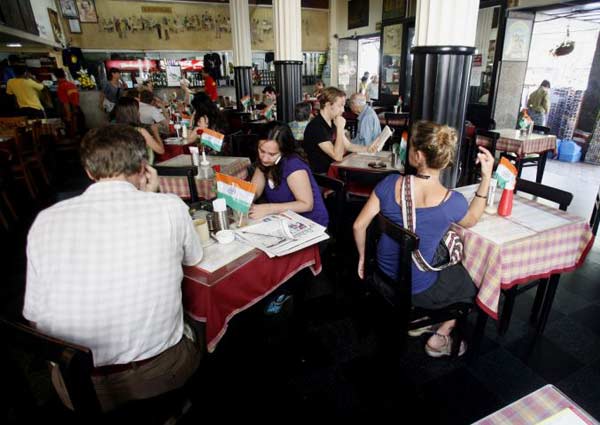Mumbai tourism fights back
A month after the attack, the city is back in business says Devanshi Mody

Your support helps us to tell the story
From reproductive rights to climate change to Big Tech, The Independent is on the ground when the story is developing. Whether it's investigating the financials of Elon Musk's pro-Trump PAC or producing our latest documentary, 'The A Word', which shines a light on the American women fighting for reproductive rights, we know how important it is to parse out the facts from the messaging.
At such a critical moment in US history, we need reporters on the ground. Your donation allows us to keep sending journalists to speak to both sides of the story.
The Independent is trusted by Americans across the entire political spectrum. And unlike many other quality news outlets, we choose not to lock Americans out of our reporting and analysis with paywalls. We believe quality journalism should be available to everyone, paid for by those who can afford it.
Your support makes all the difference.After 70 hours of terror, Mumbai was "liberated" on 29 November. The following day, the Leopold Café, a long-standing backpacker haunt, reopened. Even though tourists had been shot there a few days earlier, it attracted such crowds that police had to shut it temporarily.
By 1 December, it was business as usual in Mumbai. The main railway terminus, where the most gruesome carnage occurred, swarms again with millions of commuters (now required to clear security channels). And last Sunday, just three weeks after what was dubbed "India's 9/11", the Taj Tower and Oberoi-Trident hotels reopened. The restaurants in the afflicted hotels were full, with survivors recommencing rudely interrupted meals.
The Oberoi-Trident's president, Ratan Keswani, regrets the new and unwelcoming security measures introduced after the terrorist attacks. However, inside the hotel, nothing has changed. Had I landed from Mars, I'd never have suspected that this was recently the scene of butchery. We've all heard about the hotel staff, who served refreshments during the the ordeal, apologising for the "inconvenience", and of the selfless heroism of those who died to save guests.
Staff who have served me over annual Mumbai visits greeted me anew with the warmest smiles.
"Let's look to the future," said the Oberoi's food and beverage manager Jitesh Kaprani, who survived the terrorists' rampage.
While the more modern Taj Tower has reopened, the historic Taj Palace will undergo restoration to "surpass" its former glory for most of the coming year. Until 26/11, the iconic 105-year-old structure looming behind the Gateway of India was the most photographed hotel on the planet. Now it's just the most famous hotel in the world.
Tourists, following an initial exodus after the attacks, are back on Colaba Causeway, behind the Taj. The "wedding season" draws many people to Mumbai in December and January. At weddings I attended recently, international guests, dressed in Indian garb, danced to Bollywood tunes. Mumbaikars see this as one way to reject terrorism.
Locals rushed to reclaim their favourite restaurants. The Trident's chichi Frangipani lures the crème de la crème of Mumbai society for luncheon, while Liz Hurley is often spotted at India Jones. The Taj's celebrated Shamina is still the coffee place, while the Zodiac Grill is the place to splurge in the New Year. Expect to spend at least £100 per person. Mumbai is back in business.
Join our commenting forum
Join thought-provoking conversations, follow other Independent readers and see their replies
Comments